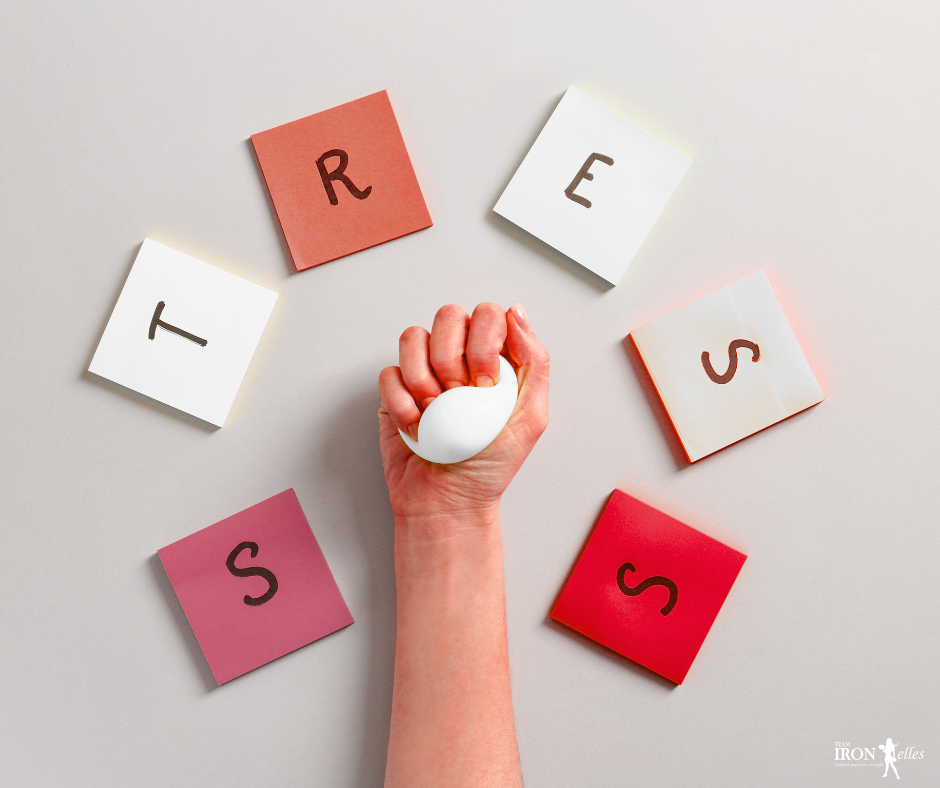I’m going to veer a little off-topic today to talk about hormones, including cortisol — the chemical messengers that tell our bodies what to do from birth to death, and how they can affect our weight. Most of the time, we don’t pay much attention to them.
Unless, of course, they’re causing chaos.
The first time it happens is during puberty. Your body, voice, skin and even your critical reasoning skills all go on a wild rollercoaster ride. For some, it’s a rough trip. Once you’re through it, you settle into adulthood and thoughts of hormonal tidal waves fade from memory.
I was reminded of this recently when I got on the scale and noted that for the second time in a month, the number went up instead of down.
That is, until you start experiencing menopausal symptoms — hot flashes, night sweats, sleep disturbances, mood swings and, if you’re like many women, weight gain.
Discouraged, I messaged Coach Leanne. I’m lifting weights four times a week, I complained. I’m on the elliptical, rower and treadmill and try to log at least 7,500 steps every day. My diet is meticulously healthy and balanced. I drink almost 3L of water a day. Why am I chasing the same two pounds over and over? It wasn’t this hard in my 40s!
Leanne gently but firmly reminded me that I am no longer in my 40s, and I shouldn’t expect the same results on the scale — or at the gym — now that I’m 55. She’s right. And hormones are (mostly) to blame.
Though the chief culprits at work here (or more to the point, sleeping on the job) are estrogen and progesterone, it turns out that there are other hormones that also affect our physical and mental health, particularly as we enter our 50s and beyond. Hormones that can slow your metabolism, increase your blood sugar levels and cause weight gain.
I have been using hormone replacement therapy for about five years now to combat my menopause symptoms and help keep my estrogen and progesterone levels balanced. But there’s another hormone that will throw a wrench into the engine every single time.
That wrench is cortisol.
Produced by your adrenal glands, cortisol is known as the “stress hormone” and plays a crucial role in your body’s response to stress and inflammation. It also helps to regulate blood pressure, sleep-wake cycles and metabolism.
When cortisol levels stay high — because you’re unable to reduce stress, for example — it can lead to high blood pressure, sleeping problems, and insulin resistance. Coupled with a decline in estrogen, cortisol can cause your body to release glucose for energy, and if you’re not using it right away, it’s stored as visceral fat — the kind that settles around your abdomen and is linked to increased risks of heart disease, type 2 diabetes and other health problems.
That’s when I connected the dots.
In the days leading up to that little gain on the scale, I had a busy and stressful week at work, a couple of nights of bad sleep because of a sore shoulder, and a night out at a marketing event where I had cider and cheese instead of my usual lean protein and fresh veggies. All of these can spike cortisol levels (yes, even alcohol), so it’s no wonder I also saw a spike on the scale.
Luckily, there are some easy ways to manage cortisol — and by extension, your weight — including:
- Stress management techniques such as mediation, journaling or spending time outdoors;
- Good sleep hygiene that includes regular sleep/wake times, no screen time an hour before bed, a quiet, dark, cool environment and a goal 7-8 hours of sleep every night;
- A healthy diet with a focus on lean protein, whole grains, leafy green vegetables and fruits while limiting processed foods and sugar; and
- Regular exercise with an emphasis on heavy weights to build lean muscle mass and bone density, along with regular aerobic exercise for cardio-vascular fitness.
Stress is inevitable. Recognizing it and working to keep it from becoming unmanageable is an important addition to my to-do list now.
The following week, I took the dogs out for some mid-afternoon walks in the sunshine and practiced some mindfulness techniques to help me refocus and remember my success so far: I am stronger. I feel better. I look forward to my workouts because they give me a boost in serotonin and dopamine (two hormones that also decline in menopause and are vital for mood regulation and overall happiness). I went to bed early and made sure I had enough protein every day. And sure enough, the next week I was down 2.4 lbs on the scale.
If you want some homework this week, here it is: Be aware of the stress in your life and how you’re able to deal with it. Talk to someone if you don’t feel like it’s within your control. Mostly, be kind to your body and take good care of it like it’s the only one you’ve got. Because it is.
Ready to take control of your fitness and manage your cortisol levels? Coach Leanne is here to help you every step of the way, whether you prefer in-person training or virtual sessions. Reach out today and start your journey toward a balanced, stronger you!
One response to “Cortisol and Weight: Let’s Connect the Dots”
-
I can relate so much to everything you write about, thanks so much for sharing your stories with us!!

Leave a Reply